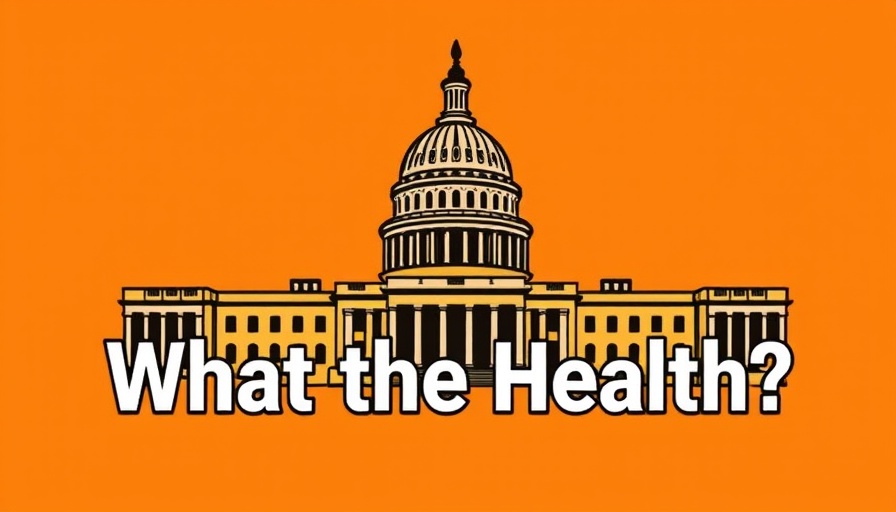
Understanding the Impacts of Trump's Big Budget Law on Healthcare
In a world where healthcare is constantly evolving, the recent discussions surrounding Trump’s Big Budget Law have raised significant questions about its implications. For families, understanding how this legislation might impact vital areas like maternal health, child nutrition, and access to medical infrastructure is crucial. As parents, we want our children to grow up healthy and safe, which makes our awareness of such policies essential.
Public Health and Healthcare Access: What does it mean for families?
The budget law has the potential to redefine public health initiatives that directly affect families, especially those in rural and urban settings. For instance, securing funding for maternal health and child mortality prevention is critical as it directly impacts the lives of many young families. Parents need to comprehend how changes in healthcare financing can either enhance or hinder access to essential services.
The Importance of Disease Prevention in Today's Health Landscape
As parents, nurturing the health of our families requires being well-informed about disease prevention strategies. With increasing concerns about chronic diseases and infectious diseases like HIV/AIDS, tuberculosis, and malaria, the position of health technology and medical innovations is vital. Effective vaccination programs and health surveillance can prevent outbreaks, ensuring our children stay safe from dangers that can arise from public health threats.
The Role of Health Equity in Family Health
Health equity is all about ensuring everyone has a fair opportunity to attain their highest level of health. Parents should know how this budget law addresses disparities in healthcare access. Understanding investments in health workforce training, community health workers, and primary healthcare can provide insights into how these efforts can support your family’s health locally.
What This Means for Maternal and Child Health Programs
The legislation's effect on maternal health and reproductive health policies could determine the resources available for expecting mothers and their children. An informed parent can advocate more effectively for programs that prioritize family planning, child development, and nutrition, knowing that these elements are vital in reducing maternal mortality and enhancing child health.
Investing in Digital Health and Telemedicine
With the rapid advancement of health technology, digital health solutions like telemedicine can transform how families access healthcare. Recognizing the importance of telemedicine and its role in improving healthcare access in remote areas can empower parents. Embracing these innovations may lead us all toward better health outcomes, especially in regions with limited medical infrastructure.
Staying Informed: The Role of Health Promotion and Education
As caregivers, it’s our responsibility to stay ahead of healthcare trends that can impact the welfare of our families. Health education is one of the most powerful tools at our disposal. Engaging with community health initiatives and understanding the sustainable practices in nutrition and environmental health can set a solid foundation for healthy family habits.
Taking Action: What Can Parents Do?
Being proactive in understanding new health policies is key. Familiarize yourselves with available resources in your community and advocate for equitable healthcare policies that benefit families. You may also consider reaching out to healthcare professionals to discuss vaccination schedules, nutrition programs, and available health services to stay informed about best practices for family health.
In conclusion, as parents, comprehending the intricacies of Trump’s Big Budget Law and its effects on healthcare is not only beneficial but necessary. By staying informed and involved, we can better advocate for the health and well-being of our children and families. So, let’s take these insights and share them with our communities. By doing so, we can create a healthier future for all.
 Add Row
Add Row  Add
Add 




Write A Comment